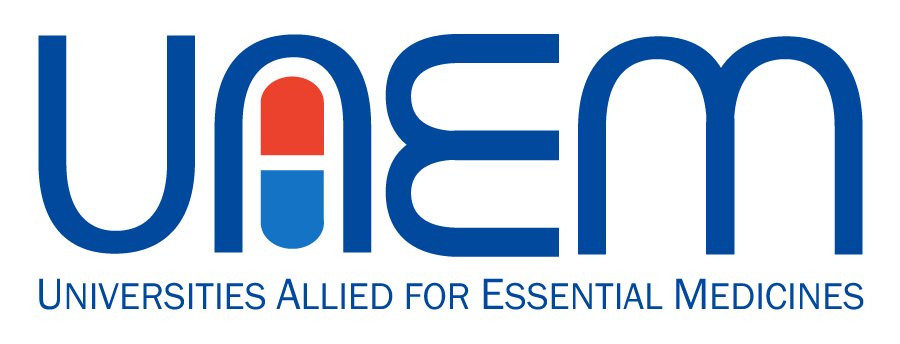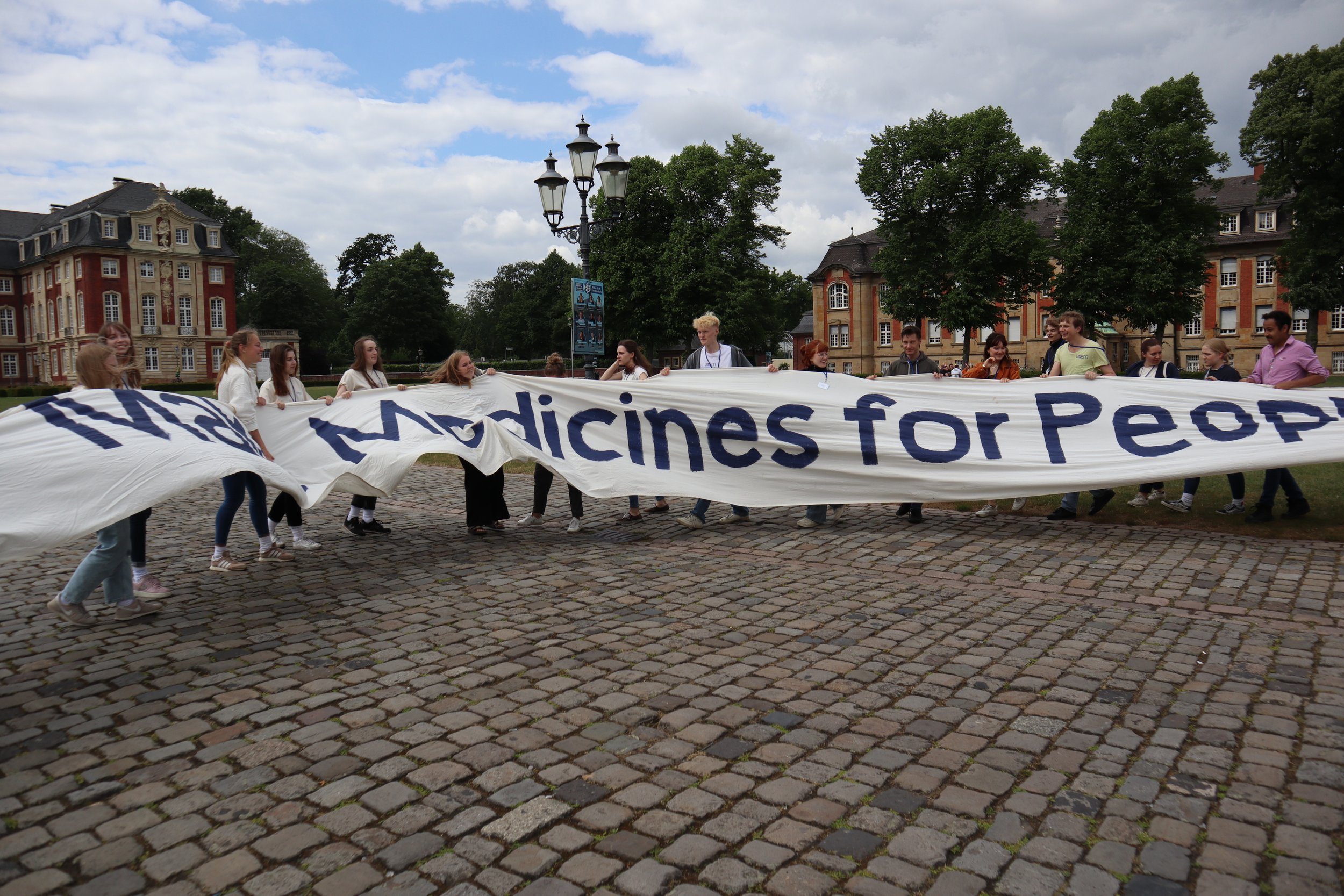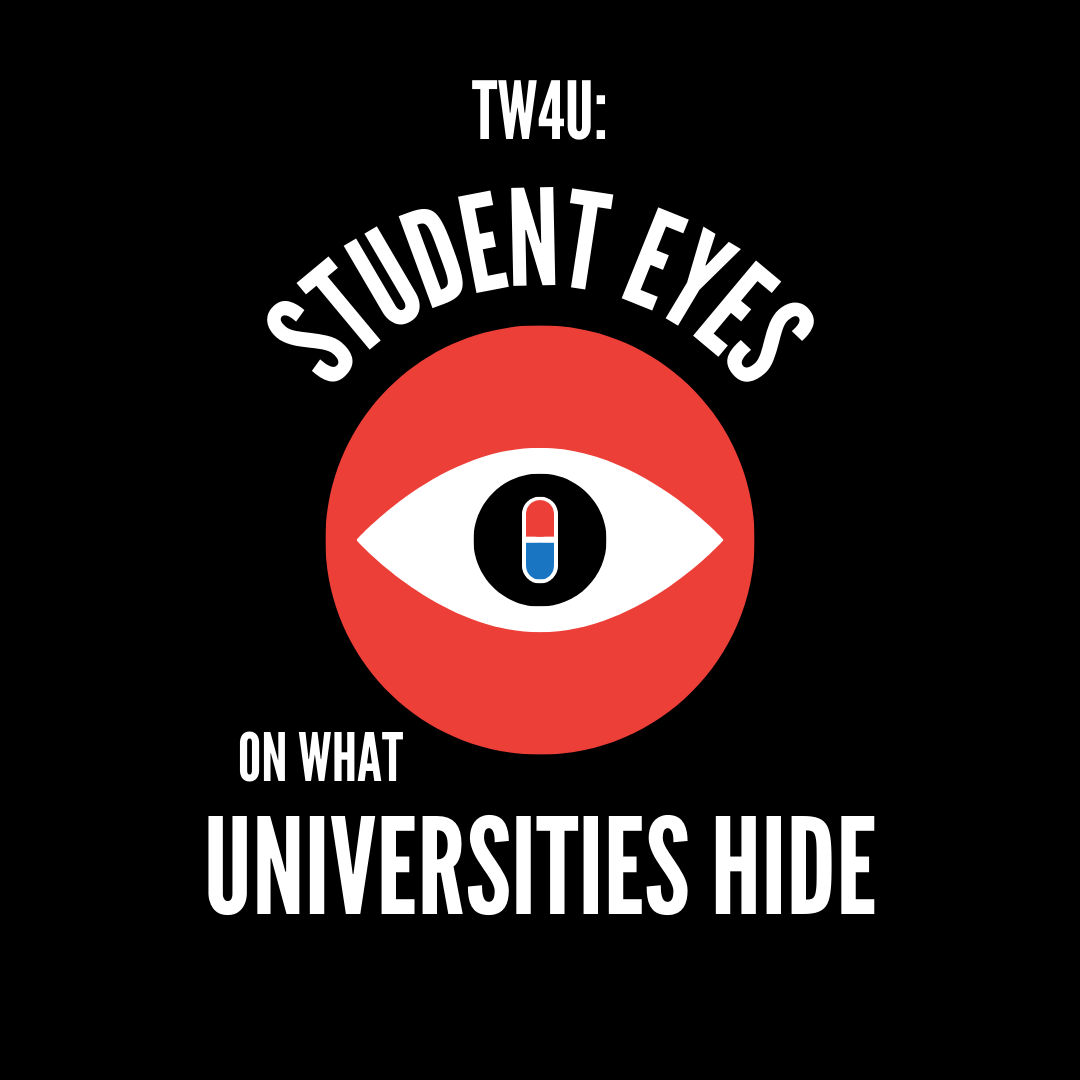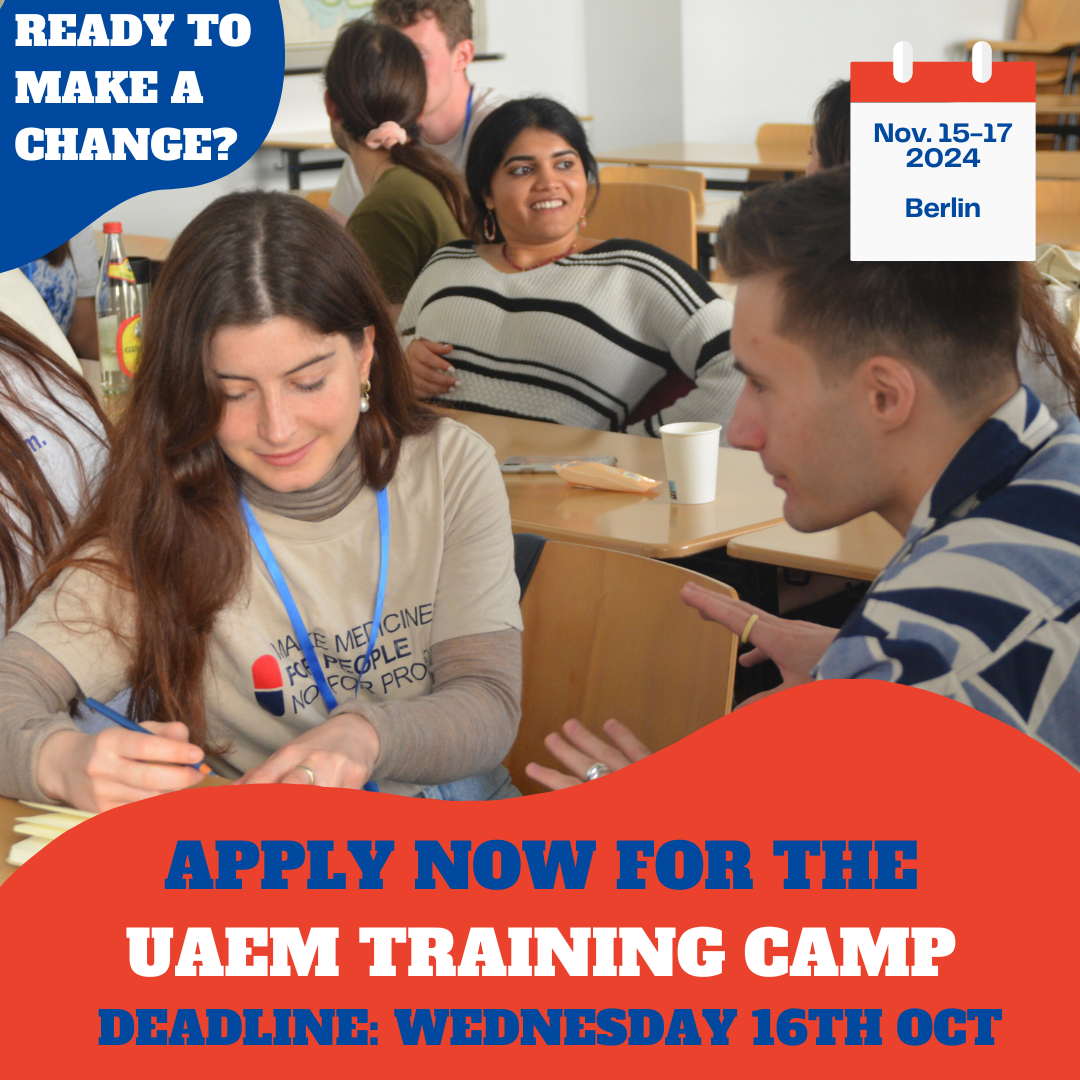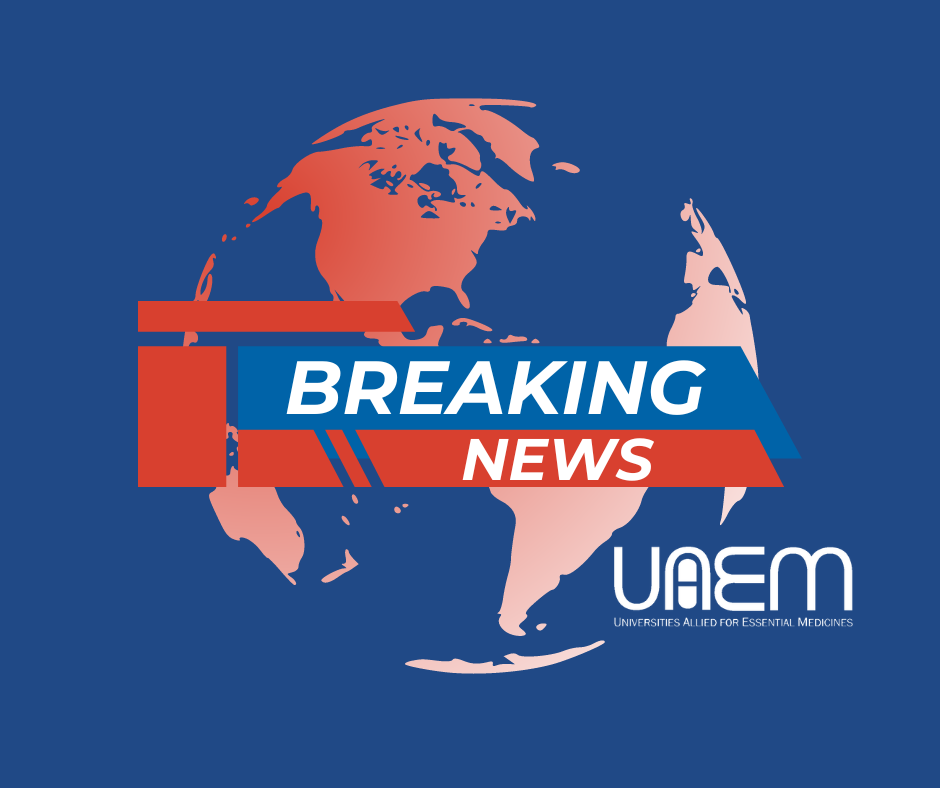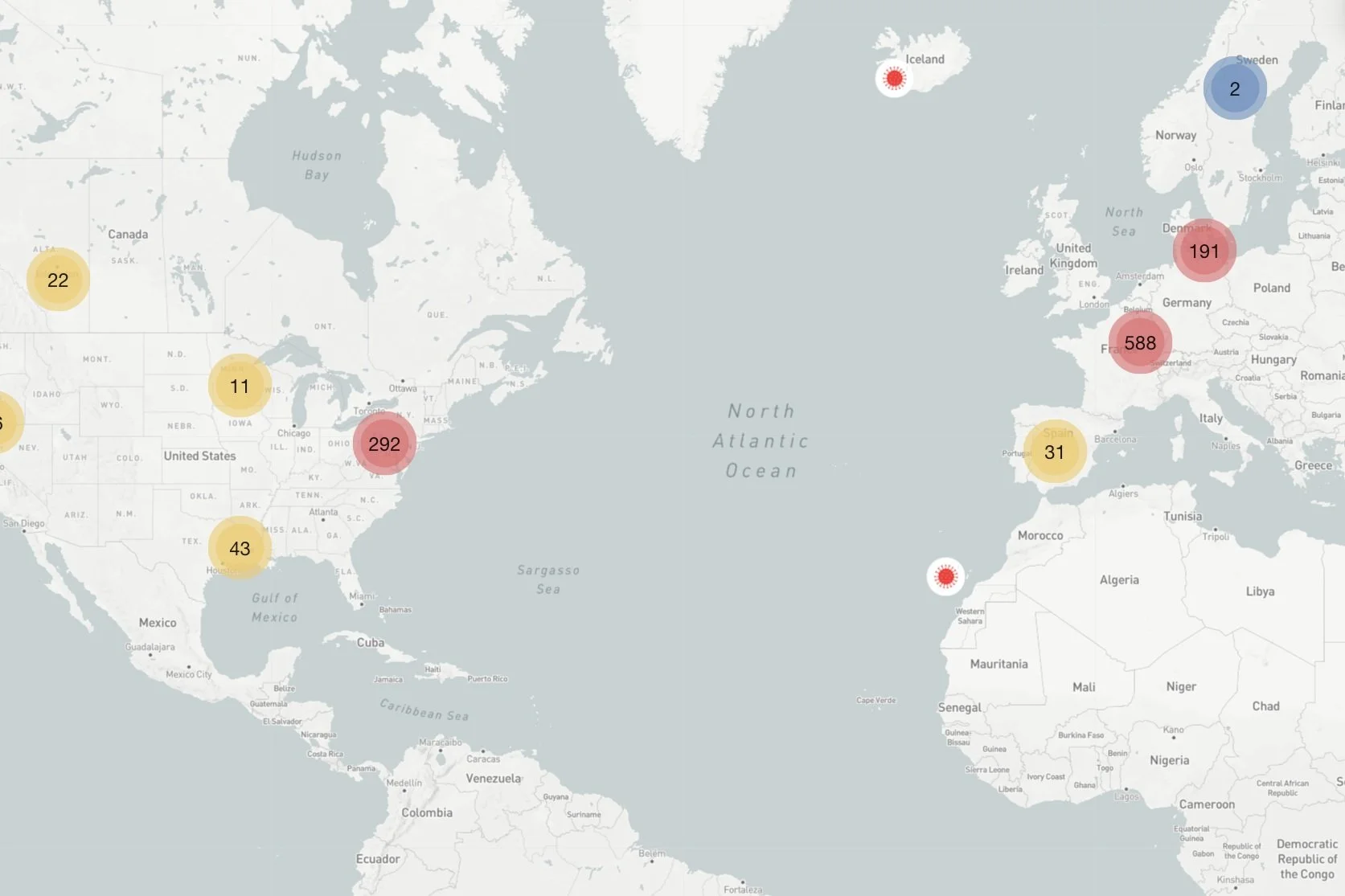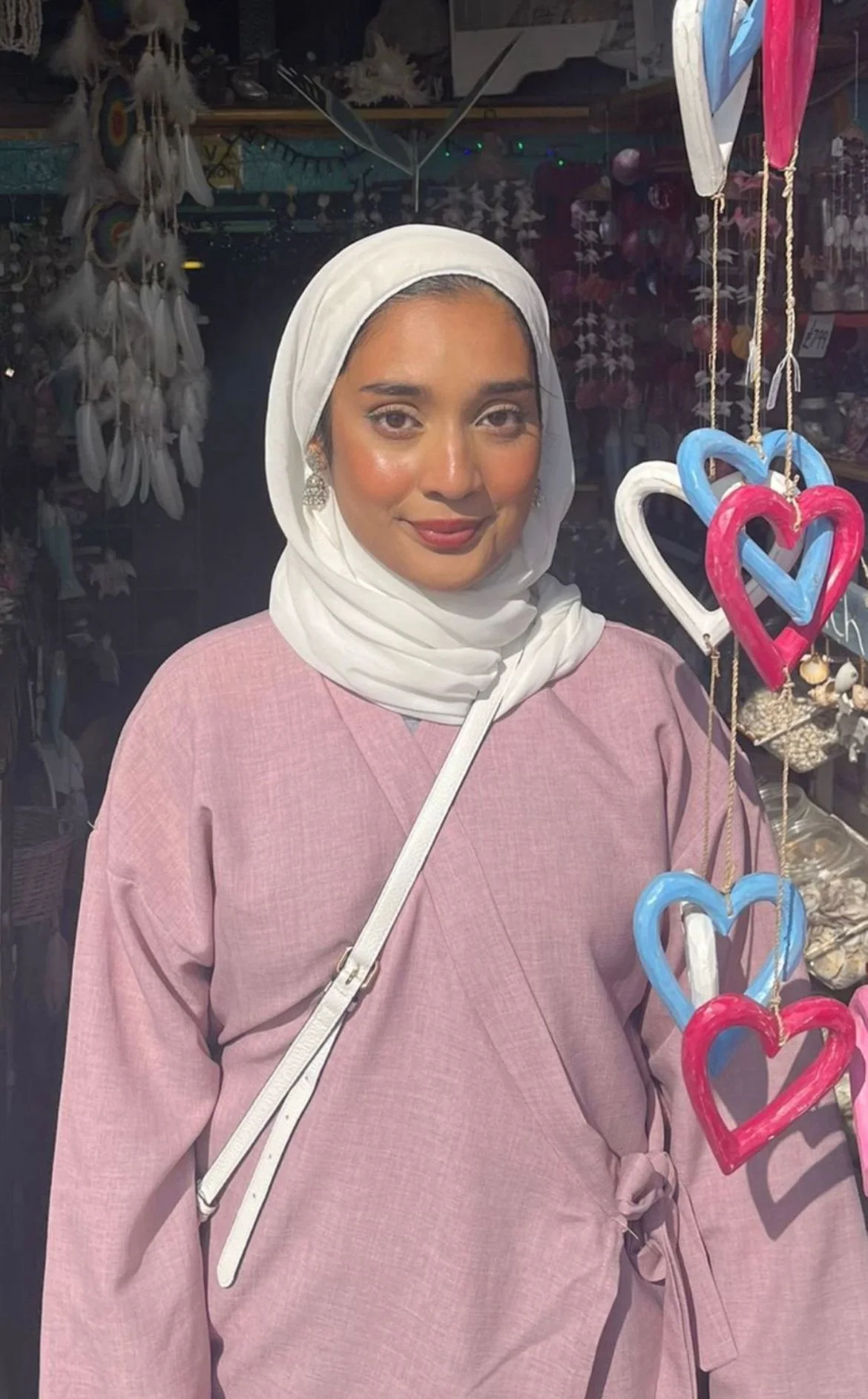UAEM Europe
UAEM Europe is made up of members across the continent working to push their universities to lead the way in policies that allow access to essential medicines and to research diseases that will meet the world’s greatest needs.
Join us to become a member or to get updates from our network.
Our Work
-
UAEM Europe Created this Chapter Handbook to use to get up to speed on UAEM projects and start your chapter.
-
A project of Universities Allied for Essential Medicines (UAEM), the University Report Card uses publicly-available data and university self-reported information to evaluate five key questions:
How and in what ways are universities investing in innovative biomedical research that addresses the neglected health needs of low- and middle-income countries (LMICs)?
When universities license their medical breakthroughs for commercial development, are they doing so in ways that ensure equitable access for people in low and middle income countries? Will these innovative treatments be made available at affordable prices?
Are universities empowering the next generation of global health leaders by educating them on the crucial impact that academic institutions can have on global health and access to medicines through their biomedical research and licensing activities?
How are universities promoting transparency in clinical trial results and academic medical publications?
Have universities committed to sharing the intellectual property, knowledge and data from their COVID-19 research in a way that makes these innovations globally accessible, particularly to people in LMICs?
-
“Take Back Our Medicines” (TBOM) is UAEM’s campaign is to ensure an equitable public return (i.e. guaranteed access to affordable medicines) on public investments made in biomedical research undertaken at universities and public research institutions. While about 2/3 of R&D costs are paid by the public, i.e. by taxpayers, and half of all new medicines entering the market originate in universities and public research institutions, publicly funded programmes attach insufficient upstream safeguards or conditions to public funds to ensure accessibility, affordability and availability of medical products resulting from public investments.
Our role is to create awareness about universities’ moral responsibility to manage public research funding they receive conscientiously and in the best interest of the welfare of the public. Our proposed solution is the Equitable Technology Access Framework (ETAF), a policy framework universities can implement into their licensing policies to improve their responsible knowledge stewardship through Socially Responsible Licensing (SRL). ETAF is building on the Global Access Licensing Framework Document (GALF) by adding alternative mechanisms on how universities and public research bodies could deal with their research.
The Latest:
Resources
Leadership
-
The ECC is the body delegated by the members of UAEM Europe to explore and prioritize campaigning opportunities for UAEM. It dedicates itself to the coordination of campaigns, including recruiting, coordinating and assisting members in implementing UAEM’s campaigns. The ECC has a mandate to join in coordinating campaigns at the international level and to give guidance and input for chapter-level or national-level campaigns.
-
The Board is responsible for ensuring UAEM Europe’s strategic direction and overall performance as described in our organisational bylaws. UAEM Europe’s Board consists of a maximum of 8 Board members, usually elected for a term of two years, at UAEM Europe’s General Assembly by members of UAEM Europe.
-
A chapter is the basic unit of UAEM’s organization. It is a group of self-organized students and in some cases, young professionals, primarily based at an academic institution, often with faculty support. Chapters range in size, from more intimate groups of 2 or 3, to larger gatherings of around 30 or more students.
Across Europe, some chapters have organized into national branches, such as the UK and Germany, while there are also activities based on language with Francophone and Germanophone meetings. All of these collaborate on a European level via the European Coordinating Committee.
UAEM Europe has over 25 chapters with over 200 active members.
You can find your chapter on our chapter locator tool, here.
UAEM Europe is made up of various leadership teams and bodies that serve our mission, vision, and values.
Anna Peiris - Executive Director
Anna joined UAEM as the European Executive Director in July 2021, having been involved with the organisation since 2015. With her background in biomedical science, Anna's initial exposure to the access to medicines movement led her to become heavily engaged in UAEM, and has spent several years working on campaign development & advocacy efforts both within the UK and the European region. Prior to her position as Executive Director, Anna worked in the climate change field with the international NGO, C40 Cities. During this period, she supported municipal governments in reducing their carbon emissions through implementing innovative transportation electrification policies. Anna is based in the Berlin Office.
UAEM Europe Coordinating Committee
UAEM Europe Board of Directors
